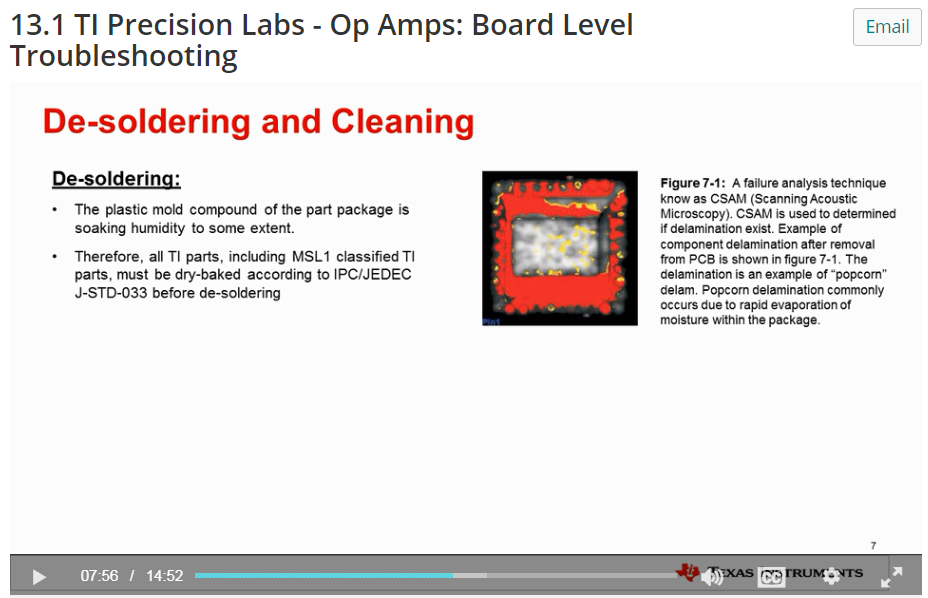Hello guys,
One of my customers is about to start mass production of their new products which use MC33078.
The customer has the following question. Could you please give me your reply?
Q. MC33078 MSL is class1. So the device floor life is unlimited under less than 30 degree C and less than 85% humidity.
But if the device is storaged under conditions whitch in more than 30 degree C or more than 85% humidity,
can the device be used with baking way base on The Reference Conditions for Drying Mounted or Unmounted SMD Packages table in IPC/JEDEC J-STD-033C?
Your reoly would be much appreciated.
Best regards,
Kazuya.


